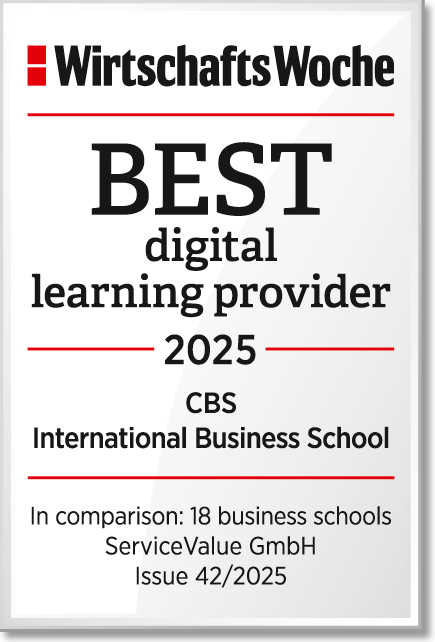About us
Shaping the Future: Insights and Perspectives for the Job Market of the Future

A University for the Workforce of Tomorrow
CBS University of Applied Sciences offers practice-oriented teaching concepts that prepare students specifically for the demands of the job market.
As a digital presence university, it combines on-campus lectures, online formats, and independent study into a flexible and multimedia learning environment. With around 1,300 corporate partners and personalised career support, the university facilitates an optimal career start.
The study programmes focus on future-oriented fields, offering versatile career opportunities in growing industries.

Benefits at a glance
With around 4,000 students across ten locations, CBS University of Applied Sciences is one of Germany’s leading private universities. Its study portfolio covers business, social sciences, education, and health – available in full-time, dual, or part-time formats.
Education That Makes an Impact
We believe in education that transforms, connects, and drives progress. With a new approach to higher education, strong partnerships, and practice-based learning, we empower, encourage, and inspire individuals to actively and responsibly shape their future as part of a dynamic community.
Discover CBS University of Applied Sciences
Tradition meets innovation
CBS University of Applied Sciences was founded in 1993 as Cologne Business School in Cologne. Since then, much has changed! Our guiding principle, "Creating Tomorrow," has shaped the university’s entire history. We were early to recognise emerging trends, introduced the American bachelor’s degree model in Germany, and in 2018 became the first German university to receive international IACBE accreditation.
In 2020, we merged our Cologne, Mainz, and Potsdam campuses under the CBS International Business School brand. In 2022, we expanded our portfolio to include dual management degree programmes. Since 2025, we have also integrated the degree programmes of EU|FH Health, Social Sciences, and Education under the CBS University of Applied Sciences umbrella.
As part of the Klett Group, we are one of Germany’s leading education providers.





.png)







.jpg)












